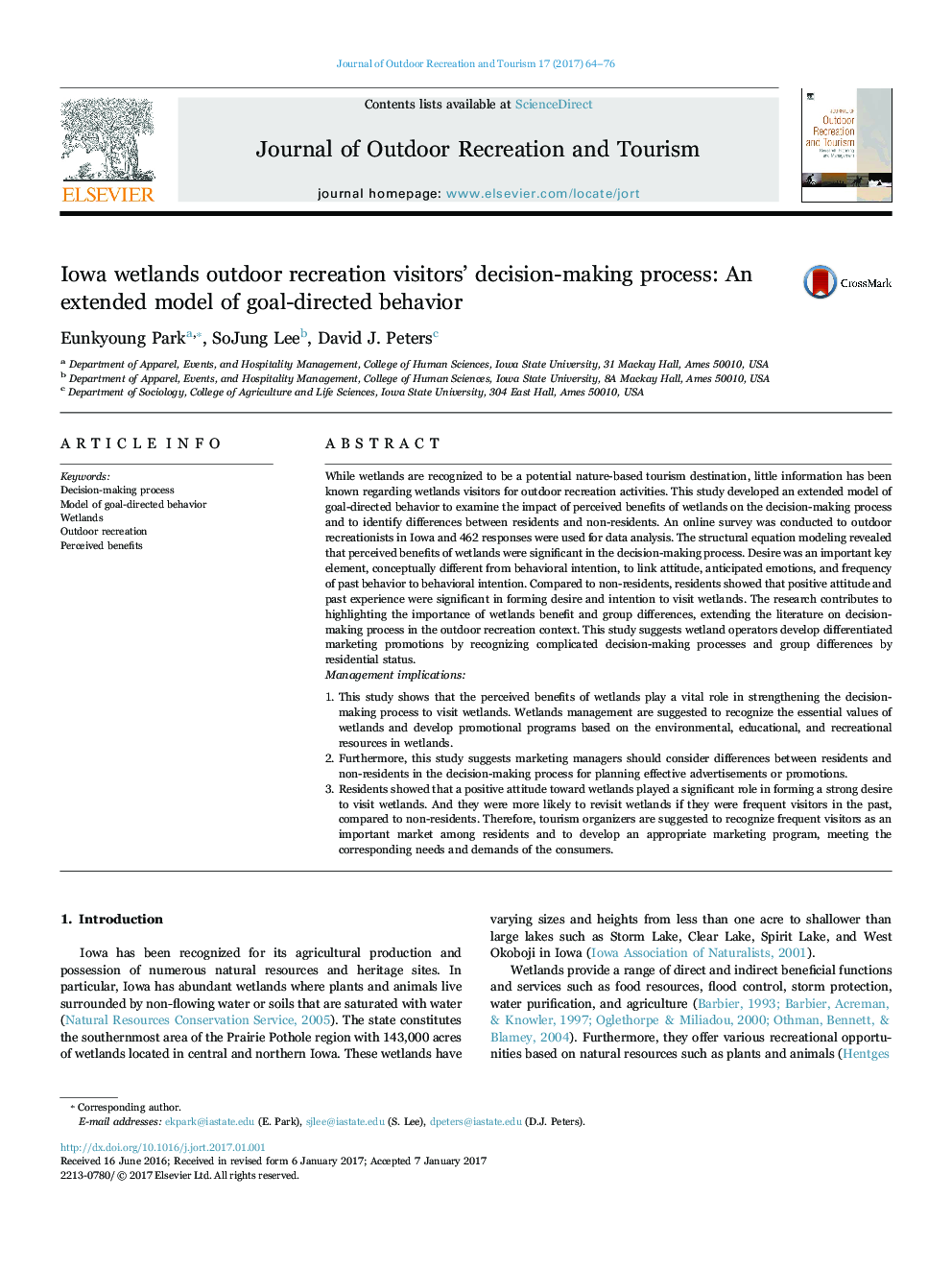| کد مقاله | کد نشریه | سال انتشار | مقاله انگلیسی | نسخه تمام متن |
|---|---|---|---|---|
| 4759882 | 1421754 | 2017 | 13 صفحه PDF | دانلود رایگان |
While wetlands are recognized to be a potential nature-based tourism destination, little information has been known regarding wetlands visitors for outdoor recreation activities. This study developed an extended model of goal-directed behavior to examine the impact of perceived benefits of wetlands on the decision-making process and to identify differences between residents and non-residents. An online survey was conducted to outdoor recreationists in Iowa and 462 responses were used for data analysis. The structural equation modeling revealed that perceived benefits of wetlands were significant in the decision-making process. Desire was an important key element, conceptually different from behavioral intention, to link attitude, anticipated emotions, and frequency of past behavior to behavioral intention. Compared to non-residents, residents showed that positive attitude and past experience were significant in forming desire and intention to visit wetlands. The research contributes to highlighting the importance of wetlands benefit and group differences, extending the literature on decision-making process in the outdoor recreation context. This study suggests wetland operators develop differentiated marketing promotions by recognizing complicated decision-making processes and group differences by residential status.Management implications1.This study shows that the perceived benefits of wetlands play a vital role in strengthening the decision-making process to visit wetlands. Wetlands management are suggested to recognize the essential values of wetlands and develop promotional programs based on the environmental, educational, and recreational resources in wetlands.2.Furthermore, this study suggests marketing managers should consider differences between residents and non-residents in the decision-making process for planning effective advertisements or promotions.3.Residents showed that a positive attitude toward wetlands played a significant role in forming a strong desire to visit wetlands. And they were more likely to revisit wetlands if they were frequent visitors in the past, compared to non-residents. Therefore, tourism organizers are suggested to recognize frequent visitors as an important market among residents and to develop an appropriate marketing program, meeting the corresponding needs and demands of the consumers.
Journal: Journal of Outdoor Recreation and Tourism - Volume 17, March 2017, Pages 64-76
